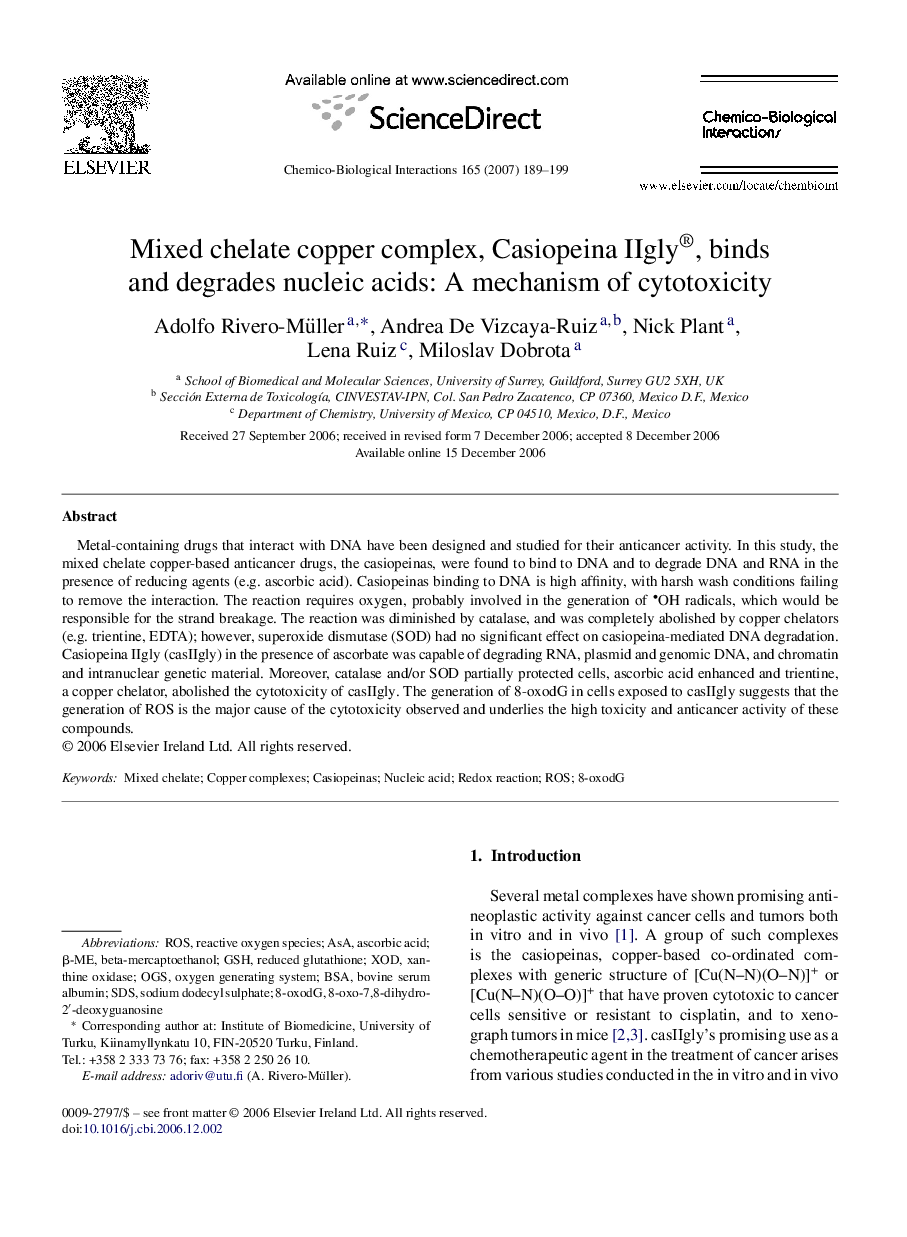| Article ID | Journal | Published Year | Pages | File Type |
|---|---|---|---|---|
| 2581932 | Chemico-Biological Interactions | 2007 | 11 Pages |
Metal-containing drugs that interact with DNA have been designed and studied for their anticancer activity. In this study, the mixed chelate copper-based anticancer drugs, the casiopeinas, were found to bind to DNA and to degrade DNA and RNA in the presence of reducing agents (e.g. ascorbic acid). Casiopeinas binding to DNA is high affinity, with harsh wash conditions failing to remove the interaction. The reaction requires oxygen, probably involved in the generation of OH radicals, which would be responsible for the strand breakage. The reaction was diminished by catalase, and was completely abolished by copper chelators (e.g. trientine, EDTA); however, superoxide dismutase (SOD) had no significant effect on casiopeina-mediated DNA degradation. Casiopeina IIgly (casIIgly) in the presence of ascorbate was capable of degrading RNA, plasmid and genomic DNA, and chromatin and intranuclear genetic material. Moreover, catalase and/or SOD partially protected cells, ascorbic acid enhanced and trientine, a copper chelator, abolished the cytotoxicity of casIIgly. The generation of 8-oxodG in cells exposed to casIIgly suggests that the generation of ROS is the major cause of the cytotoxicity observed and underlies the high toxicity and anticancer activity of these compounds.
